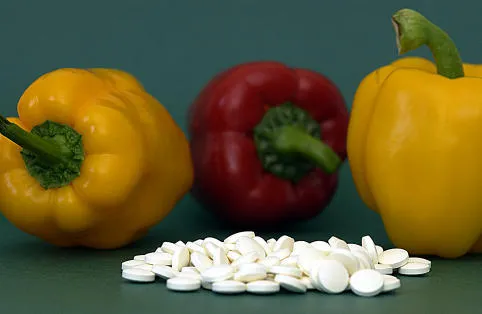Vitamin C supplements, medications, and serums are widely used, and I have personally explored both serums and supplements as part of my research. Before diving deeper, it's important to emphasize that any medication should only be taken if prescribed by a healthcare professional to avoid potential health risks. With that precaution in mind, let’s explore today’s topic.
Vitamin C is a water-soluble vitamin, meaning it is easily excreted from the body. Its short half-life contributes to its safety, as it is unlikely to lead to toxicity; excess amounts are typically eliminated through urine making it an interesting subject for both health benefits and safety considerations.
The first reason why I see a lot of people take vitamin C including myself is because it is an antioxidant. Antioxidants are molecules that donate electrons to free radicals thereby stopping their harmful chain reaction such as mutations in cells that could lead to health problems such as cancer, arteriosclerosis and do on.
The lack of vitamin C which is very rare in our world nowadays leads to scurvy which is characterized by bleeding gums, capillary fragility, soft tissue breakdown, teeth falling, and wounds not healing quickly but However it is one of the easiest nutrients to get with diet found in fruits and vegetables. So if you are eating a lot of fruit and vegetables, then you are good to go with not having to worry about scurvy.
Another reason why people take vitamin C supplements is to fight common cold and although there have been a lot of literature on this topic, there is no definitive conclusion that vitamin C fights against the cold or prevents cold. Studies showed support toward reducing the severity of the symptoms but none for prevention.
Vitamin C is present in our meals daily especially with fruits and vegetables although in the elderly, it can start dropping but then it is very difficult to become deficient if you eat fruits, vegetables, and once in a while those processed foods that you do not like to eat.
So then, I wonder, is it worth it to use vitamin supplements when one isn't deficient. The answer is yours to answer, mine is to drop evidence and let you be the judge of how to care for your health. But if you can have an orange, banana, mango, carrot, or any other type of fruit or maybe you could decide to have vegetables of different types, then you should have all the vitamin C you need.
REFERENCE
https://bmcpublichealth.biomedcentral.com/articles/10.1186/s12889-023-17229-8
https://www.ncbi.nlm.nih.gov/books/NBK279544
https://www.nhs.uk/conditions/vitamins-and-minerals/vitamin-c/
https://www.sciencedirect.com/science/article/abs/pii/S8755966886800217
https://pmc.ncbi.nlm.nih.gov/articles/PMC9598715/

